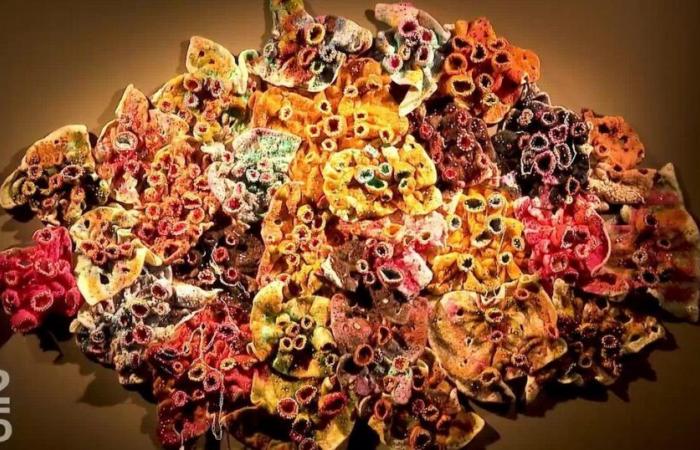We know well the organisms that cause fever or illness, a little less those that can treat or even save lives. A series of conferences at the Musée de la Main highlights the immense therapeutic potential of these microscopic adjuvants.
At a time when antibiotics are showing their limits, the fight against bacterial infections can involve bacteria or viruses. This has been the case for around ten years for intestinal infections linked to a pathogen called Clostridium. “It is a treatment with other microbes, other pathogens, with a restoration of the digestive microbiota,” explains Benoît Guery, chief physician of the Infectious Diseases Department at CHUV, in the 12:30 p.m. of the RTS.
Certain microbes are indeed our allies. “The intestinal microbiota governs a lot of things. And we have clearly demonstrated that there is a relationship with the immune response, communications with the brain, the lungs. It is something quite complex that we are starting to discover”, indicates Benoît Guery.
In the fight against cancer
This technique even helps fight certain cancers. “In fact, we are not fighting against cancers, we are restoring sensitivity to certain drugs, in particular those which fight against these cancers,” explains Benoît Guery.
It feels like opening Pandora’s box, with many therapeutic opportunities in the years to come.
Although research is still in its infancy, we are currently trying to understand the mechanisms associated with the microbiota. With an impressive number of implications. “We have the impression of opening Pandora’s box, with many therapeutic opportunities in the years to come,” rejoices Benoît Guery.
Fecal transplant
Concretely, it is not a question of probiotics or bifidus, these “good” bacteria whose virtues the general public knows in the form of food supplements. The best documented current use is that of fecal transplantation – a CHUV center in Lausanne has also specialized in the transplantation of fecal microbiota, a first in Switzerland.
>> Read also: Search for healthy stools for therapeutic medical transplant at CHUV
“We transform fecal matter into medicines to treat digestive infections,” explains Benoît Guery. “And behind it, there is everything that we could treat and which is currently under study”, for fields of application such as inflammatory diseases, colic, but also in the field of neurology, for the treatment dementia, autism, and restoration of sensitivity to cancer treatment.
The limits of this type of medicine currently lie in its manufacturing. “We use healthy donors for this. Trials have been carried out with manufacturers, but work much less well than microbiota transplantation as it is practiced at the CHUV. So behind it, in fact, there are plenty of things still to be done. document and discover.”
“Microbes, allies for our health”, as well as two other conferences can be listened to Tuesday evening at 6:30 p.m. at the Musée de la main in Lausanne.
As part of the conference cycle “Living well with microbes?” which continues until next April.
Comments collected by Sophie Iselin
Adaptation web: kkub






